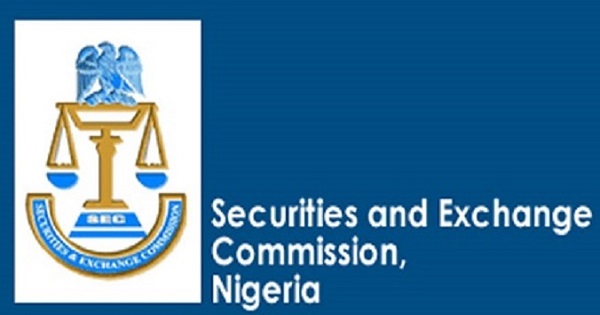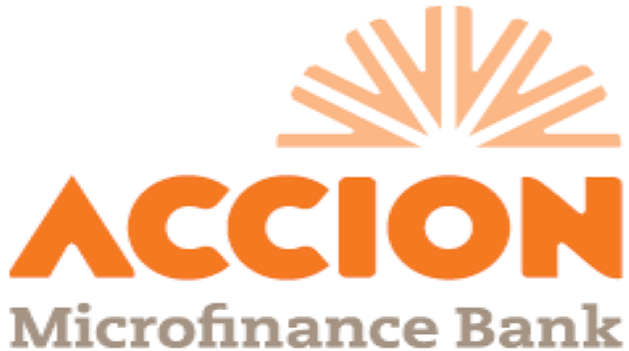E-Financial
Regulator, Market Operators Mull e-IPOs

A committee comprising of the Securities and Exchange Commission (SEC), Nigeria Stock Exchange (NSE), Central Securities and Clearing System(CSCS), and six other organisations have been set up to work out the modalities involved in issuing Electronic Initial Public Offers (e-IPOs) in Nigeria’s financial markets.
e-IPO is an application based and browser based software that facilitates online offerings to the public on a private company’s stock. Such company can thus raise money by going public through a cost-effective and comprehensive benefit that an E-IPO offers.
Mary Uduk, the ag. the director general of the SEC, said that the e-IPO committee was set up in Lagos last week during the first Capital Market Committee (CMC) Meeting.
Other organisations involved in the e-IPO deliberations include, Association of Issuing Houses of Nigeria (AIHN), Association of Stock Broking Houses of Nigeria (ASHON), Institute of Capital Market Registrars (ICMR), Capital market Solicitor Association(CMSA), Fund Managers Association of Nigeria (FMAN), and Nigerian Interbank Settlement System (NIBSS).
According to Uduk, globally, capital markets are moving towards e-IPO and the Nigerian Capital Market is working to adopt this trend.
Uduk who briefed pressmen alongside Messrs Isiaku Bala Tilde, Ag. Executive Commissioner, Operations; Henry Adekunle Rowlands, Ag. Executive Commissioner Corporate Services; Reginald Karawusa, Ag. Executive Commissioner, Legal and Enforcement on the resolutions of the CMC meeting, said the issue of increase in delistings by public companies was highlighted, and recognised as a threat to the growth and development of the market.
In a bid to curb the trend the Ag. DG noted that “In view of the fact that quite a number of them are highly capitalized companies. We are expecting the committee on listings would come up with strategies to attract new listings.”

Towards further strengthening of the capital market, Uduk explained that the extension of a forbearance window to investors on multiple subscriptions and forbearance for shareholders with multiple accounts, will last till September 2018. “Registrars have acknowledged that investors have started coming forward but there are challenges in the process.
The CMC deliberated and recommended the appropriate Technical Committee to seek input and come up with recommendations to address the challenges. Therefore, we encourage all affected investors to come forward and take advantage of the window before the new deadline.” Speaking on Direct Cash Settlement (DCS), Uduk that out of 5.1 million accounts with the CSCS, only 1,191 have Direct Cash Settlement (DCS) subscriptions and only 15 out of 18 settlement banks have contributed to the DCS initiative.
“Considering the fact that DCS will instill confidence in the market, there is the need for all parties involved in the process to work harder to achieve a 100% migration.” She said.
On the issue of commodities market, Uduk said “The Technical Committee working on developing a vibrant commodities market for Nigeria presented its report at the meeting. The report will be exposed to the public to elicit comments and inputs from all stakeholders.
She added that “the Technical Committee on Non-Interest capital market reported that the first sovereign sukuk was issued in 2017 and about 1,600 retail investors invested N5 billion on the instrument.
The next level of engagements is to work with supra-national entities (such as IFC, AfDB), state governments, institutions (such as Federal Mortgage Bank, NMRC) to include sukuk options in their capital investment plans.
“The Technical Committee on E-dividend registration reported that the total approved mandates currently is about 2.5 million translating into 466,000 unique investor accounts. The deadline for the free E-dividend registration was 31 March 2018 and that has not changed. The new direction of the industry is that bank managers along with registrars will charge a token sum of N150 per mandate.
The Commission also warned the public to exercise extreme caution with regards to crypto currencies as a vehicle of investments, as part of its investor protection mandate.
The warning was particular, especially as none of the persons, companies or entities promoting cryptocurrencies has been recognized or authorized by SEC or by other regulatory agencies in Nigeria to receive deposit from the public or to provide any investment or other financial service within or outside Nigeria.
Other deliberations and outcome at the CMC meeting include an update of the Commission’s database for registration and functions of Capital Market Operators (CMOs), which can be found on the SEC website, the issuance of a new set of Registration Certificates to operators without expiry dates, made available at the SEC’s head office and Lagos Zonal Office and the commencement of the distribution of electronic annual accounts of public companies.
On financial inclusion, the Ag. DG mentioned that the Commission is working with National Educational Research and Development Council (NERDC) to institute a stand-alone capital market curriculum for basic and senior secondary education in Nigeria. “To this end, Trade Groups made commitments at the meeting to support this initiative.”
E-Financial
Zenith Banks Leads as 8 Banks Suffer N156Bn Impairment Charges

Eight leading Nigerian banks collectively set aside N156 billion as impairment charges on their credit and financial assets, marking a significant financial impact amidst a challenging economic environment, in the opening quarter of 2025.

Known commonly as loan losses or credit impairments, these charges highlight the banks’ defensive measures against risks arising from inflation, naira depreciation, and tightened liquidity affecting consumers and businesses alike.
The level of impairment varied considerably across institutions, reflecting divergent risk appetites and credit management practices.
Zenith Bank led with the highest provision of N49.38 billion, an 11.8 percent reduction from the previous year’s N55.97 billion.
This decline may suggest enhanced asset quality or more rigorous loan recovery tactics.
Broken down, loans and advances contributed N35.95 billion to impairments, while investment securities and treasury bills added N7.1 billion and N2.16 billion respectively.
Despite heavy provisioning, Zenith recorded a notable 20.7 percent increase in post-tax profit, soaring from N258.34 billion to N311.83 billion.
Similar trends emerged at First HoldCo, which posted N37.25 billion in impairment (down 11.2 percent), driven mainly by loans and advances provisions of N41.23 billion.
Offsetting this were write-offs and reversals that mitigated losses.
First HoldCo’s profit, however, fell to N171.10 billion from N208.11 billion.
Access Holdings and Guaranty Trust Holding Company also demonstrated reduced impairment charges, indicating stronger credit monitoring.
Access’s net provision dropped 4.5 percent to N21.77 billion, while Guaranty Trust’s impairment stabilized near last year’s N13.42 billion figure.
Yet, Guaranty Trust’s profit plunged 43.6 percent to N258.03 billion, a striking contrast to other banks’ profit growth.
On the other hand, United Bank for Africa (UBA) faced a staggering 332.2 percent surge in impairment, from N3.28 billion to N14.18 billion—pointing to amplified credit risks possibly driven by external economic pressures.
Nonetheless, UBA recorded a 33.1 percent profit uptick to N189.84 billion.
FCMB’s impairment charge fell notably by nearly 60 percent to N9.52 billion, aided by significant recoveries of previously written-off loans, boosting its profit to N32.23 billion.
Meanwhile, Fidelity Bank and Wema Bank posted sharp rises in impairment—285.8 percent and 64.7 percent increases respectively—reflecting heightened write-downs that underscore growing risk exposure amidst portfolio expansions.
Overall, while the cumulative impairment charge diminished by 5.2 percent compared to Q1 2024, individual bank results were mixed, embodying the varied strategies and external pressures in Nigeria’s banking sector.
E-Financial
SEC Flags FF Tiffany as Ponzi Scheme

Securities and Exchange Commission (SEC) has revealed plans to commence investigation into the activities of an entity operating under FF Tiffany, allegedly running a fraudulent investment scheme that has defrauded citizens.

A statement by SEC on Tuesday in Abuja said preliminary information revealed that the scheme, which promised investors unusually high and unrealistic returns, had resulted in the loss of several billions of naira.
The SEC said it viewed the activity as a threat to investor confidence and the overall integrity of the financial system.
The commission assured the public that it was working closely with law enforcement agencies and other relevant bodies to bring everyone involved in the unlawful operation to justice.
According to SEC, those found culpable will be prosecuted in accordance with Investment and Securities Act (ISA) and regulatory provisions.
SEC reiterated its earlier warnings to the general public to desist from engaging in Ponzi or unregistered investment schemes that promised guaranteed or exaggerated returns.
”These schemes are not registered with the SEC and do not offer investor protection under the law.
“The commission is currently investigating 79 schemes and will make a statement on its findings at the conclusion of the investigation,” the SEC said.
The commission encouraged investors to conduct due diligence and verify the registration status of any investment firm or product by visiting the SEC website or contacting the commission directly through official channels.
SEC said it remained committed to its mandate of protecting investors, ensuring fair practices, and maintaining confidence in Nigeria’s capital market.
E-Financial
AccionMonie App to Empower Low-Income Households

Accion Microfinance Bank has unveiled AccionMonie, a next-generation digital financial services platform aimed at empowering individuals, micro, small, and medium enterprises (MSMEs), as well as low-income households across Nigeria.

Speaking at the official launch in Abuja, Chief Executive Officer of Accion MfB, Taiwo Joda, described the introduction of AccionMonie as a significant milestone and a testament to the bank’s culture of innovation, designed to meet the evolving needs of its customers.
“At Accion Microfinance Bank, we believe in the potential of every MSME to drive inclusive economic growth. That is why we are committed to empowering them with the financial support they need to grow, innovate, and make a lasting impact in their communities and beyond,” Joda said.
He added that the app provides instant access to essential services including loans, savings, and other forms of financial support.
According to Joda, AccionMonie is a strategic component of the bank’s “Always There to Lend You a Hand” campaign, which underscores its commitment to small business development and the economic upliftment of underserved households. The campaign positions Accion MfB as not only a financial institution but also a trusted partner in its customers’ journey to prosperity.
Highlighting the economic role of MSMEs in Nigeria, he noted that with an estimated 37 million MSMEs, the sector accounts for 86% of employment and contributes 48% to Nigeria’s Gross Domestic Product (GDP). However, these enterprises continue to face major challenges such as limited access to finance, inadequate infrastructure, and an unfavourable business environment.
Also speaking at the launch, the bank’s Chief Commercial Officer, Stephen Olalere, said the combination of AccionMonie and the bank’s expansive network of over 74 branches across 12 states will help bridge the gap in financial service delivery to small businesses.
“The platform’s user-friendly features are designed to simplify payments and offer vital support to businesses and individuals alike,” he said.
Paul Ehiagbonare, Chief Digital Officer of the bank, described the launch as a bold step toward digital leadership and financial empowerment.
“For us, AccionMonie reflects customer empowerment through digital tools and technologies. It offers a range of customer-focused features designed to promote financial inclusion,” he said.
One of its standout features is Save2Loan, which allows users to save between ₦50,000 and ₦250,000 over a 90-day period and become eligible for a loan worth twice their saved amount. This, Ehiagbonare explained, will help promote a savings culture while enhancing credit access.
In addition, customers can conveniently fund their AccionMonie accounts using any debit card, eliminating the need for physical visits or long queues in banking halls.

 Telecom2 days ago
Telecom2 days agoNCC Introduces N10m Licence Fee for Bulk SMS Service

 Telecom2 days ago
Telecom2 days agoMTN Nigeria Targets $1Bn Cloud Market with Largest Modular Data Centre

 General News2 days ago
General News2 days agoWoodhall Capital and Partners Launch ₦1.5Bn Fund

 E-Business2 days ago
E-Business2 days agoFirm Highlights Top Risks of Quantum Computing

 General News2 days ago
General News2 days agoBurna Boy Distances Himself from Meme Coin, Labels Crypto as Fraud

 Telecom2 days ago
Telecom2 days agoPAT Taps Osi as CEO

 E-Financial2 days ago
E-Financial2 days agoAfrica Launches PAPSSCARD, First Pan-African Card Scheme

 E-Financial1 day ago
E-Financial1 day agoZenith Banks Leads as 8 Banks Suffer N156Bn Impairment Charges














